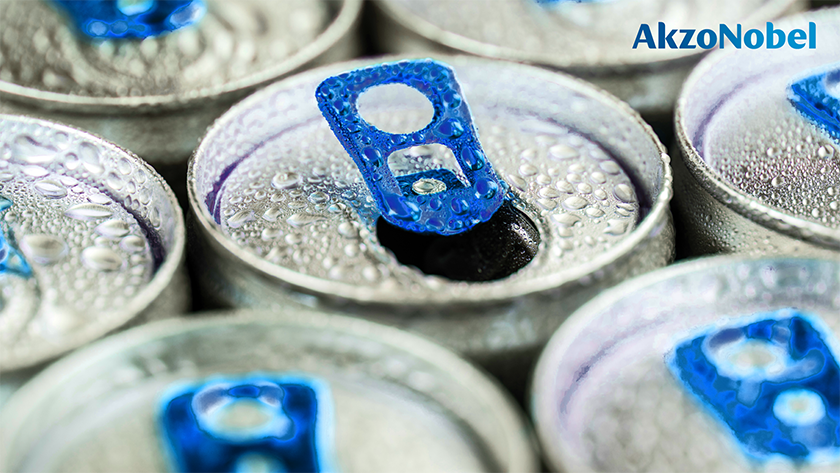More news
- New Managing Director of BASF’s Coatings division
- Global New Material International (GNMI) to acquire Merck’s Surface Solutions busine...
- Delta Coatings unveils plans for global eco-friendly HQ and plant
- PPG recognised for sustainability progress by FTSE4Good for sixth consecutive year
- ChemQuest expands Business Development team, names four VPs

Can makers and coil coaters ramping up their bisphenol-free transition have a ready alternative in a new BPA-NI (Bisphenol A non-intent)* internal coating for beverage can ends, from AkzoNobel Packaging Coatings.
As a BPA-NI coating, Accelshield 700 does not use BPA or bisphenol-based epoxies as part of its manufacturing process. It complies with both Food and Drug Administration (FDA) and EU regulations.
The product will help meet the surge in demand for alternative coatings that’s expected after the European Food Safety Authority’s (EFSA) recent opinion of BPA restrictions in metal packaging of food and beverage products. Bisphenols are currently ubiquitous throughout the manufacturing industry, a situation with growing urgency for change following EFSA’s opinion.
“With today’s technological advancements, bisphenols are no longer required to create safe coatings for state-of-the-art metal can packaging,” says Chris Bradford, Industrial Coatings Marketing Director, AkzoNobel Packaging Coatings. “BPA-NI coatings are a significant innovation, marking a critical turning point for the industry. Accelshield 700 will help can makers future-proof their selection.”
The new coating has been designed for challenging foods and liquids – including those that are very acidic or require high-temperature sterilisation processes, such as yogurt drinks, milk and coffee – in addition to soft drinks and beer.
Integrating easily into customers’ existing manufacturing processes, Accelshield 700 also respects the need for can makers to mitigate disruption to their production lines.
AkzoNobel’s approach to the BPA and bisphenol transition prioritises consumer safety and sustainability with responsible material substitutions, while taking care to limit disruption to the value chain. The company is working closely with customers to help accelerate the adoption of bisphenol alternatives.



